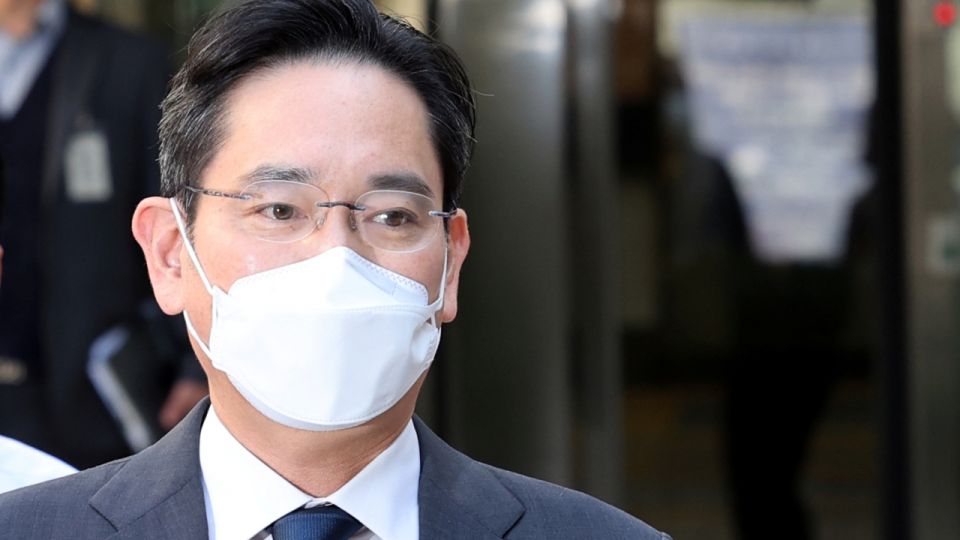October 28, 2022
SEOUL – Samsung Electronics Vice Chairman Lee Jae-yong has been promoted to chairman of the world’s largest chipmaker and smartphone maker, ending a high-profile succession process that took more than three decades to complete, with a vow to invest in transcending technology that could reboot the tech giant’s growth engine.
Lee, 54, was crowned Samsung Electronics’ new executive chairman with the board of directors’ approval Thursday morning, 10 years after he held the vice chairman title and 31 years after he joined the electronics empire, which was then seeing an exponential growth thanks to his late father.
Samsung Electronics Board Chairman Kim Han-jo recommended the appointment, the company said, adding that the board members cited the “current uncertain global business environment” and “the pressing need for stronger accountability and business stability” in approving the recommendation.
“I’m taking on a huge responsibility,” Lee told reporters while attending a trial Thursday. “I’ll make (Samsung) a more trusted and beloved company for the people.”
In a separate note to Samsung staff and executives, Lee pledged to seek transcendental ideas for a corporate survival in times of uncertainties.
“Now is the time to be daring and defiant,” Lee was quoted as saying in the recent remarks.
“Futuristic technology will determine our fate. We need to invest in technologies that are not of today.”
The accession of Lee puts an end to a decadelong leadership void at the tech juggernaut. The electronics giant had operated without an “official” chairman as his late father left the management before passing the baton to his son.
As his father slipped into a coma in 2014 following cardiac arrest, however, Lee has practically led the group as the de facto successor. Antitrust authorities recognized Lee as the de facto leader of Samsung in 2018.
Though now confirmed as the new leader, Lee faces a series of challenges.
South Korea’s largest conglomerate has been looking for a new growth driver for years and has sought to transform its militant corporate culture.
In May, the group announced a five-year plan to invest 450 trillion won ($317 billion) in the fields of semiconductors, biotechnology, artificial intelligence and telecommunications, but has yet to present concrete details on what the plan entails.
While Lee’s promotion signals a stronger grip on Samsung’s crown jewel, Lee is unlikely to be a controlling shareholder of the tech giant just yet, although the bequeathal of the late chairman’s shares to Lee Jae-yong and other family members was completed in April 2021.
Lee holds 1.63 percent voting rights in Samsung Electronics, but he holds stronger sway over the tech giant, as Samsung C&T, its de facto holding company, holds a 5.01 percent stake. Samsung Life Insurance, in which Samsung C&T and Lee own a combined 30 percent stake, has nearly 9 percent of Samsung Electronics’ voting rights.
Risks remain over the fate of a bill proposed in 2020 to ensure insurers’ financial adequacy. If the parliament passes the bill, Samsung Life Insurance will be forced to sell its stake in Samsung Electronics, which could possibly cut the chain of support to Lee’s voting rights.
Moreover, eyes are also on whether Samsung will revive a groupwide decision-making unit that is the equivalent to the now-defunct Future Strategy Office to achieve efficiency. Samsung has declined to comment on the matter.
Lee’s coronation, however, would empower him to start making landmark decisions in regard to Samsung’s future growth at a critical time of geopolitical uncertainties, according to market observers.
“(Lee’s) strong leadership and fast decisionmaking will serve to create business opportunities amid escalating geopolitical tensions, such as the US-China chip tech rivalry, to maintain the world’s No. 1 in the memory market and strengthen competitiveness in the ailing foundry sector,” noted Liz Lee, associate director of Counterpoint Research.
Lee’s road to leadership has been long, marred with a stretch of disgrace for his involvement in a high-profile bribery scandal.
In January 2021, Lee was convicted of bribery and embezzlement over the financial support of former President Park Geun-hye’s close confidant’s equestrian daughter. It came after the bribery scandal swept the country in 2017 and brought down the president. He was granted a presidential pardon in August this year.
Lee is the last member of the family in the line of succession at Samsung, as the business tycoon in May 2020 declared an end to dynastic control of the nation’s largest business conglomerate.


